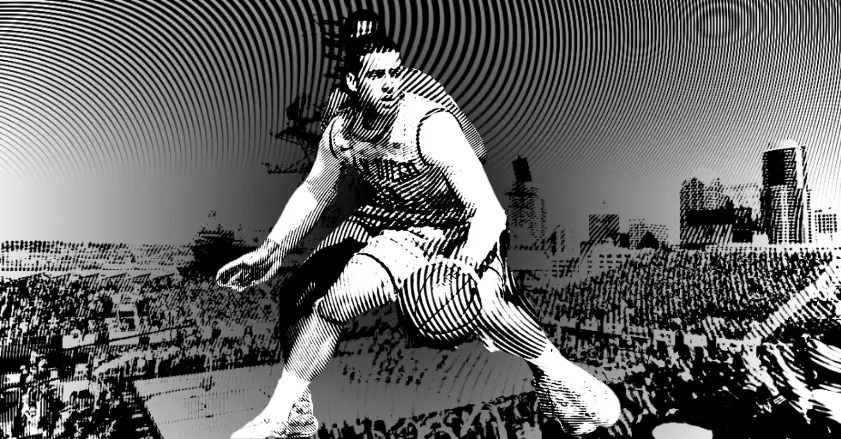Any landlubber aboard a vessel will take time to gain their sea legs. Even competitive athletes may run aground with the unpredictable swaying of the ocean waves rocking a boat. Now imagine playing basketball, with every dribble bouncing off the deck and each shot and pass hoping to find its target without careening off the deck. The weather would also significantly affect the game. These were issues at the forefront of the minds of players, coaches, and spectators participating in the Carrier Classic, a series of NCAA College Basketball games played on the deck of an aircraft carrier. Despite a rocky start in initial contests, the idea was revived and exhibited on primetime television this past Veteran’s Day.
The inaugural match occurred on 11/11/11, pitting North Carolina against Michigan State onboard the USS Carl Vinson in San Diego. President Obama and over 8,000 others watched the historic game on Veteran’s Day. Despite fears by some players that the rocking of the ship would impair shooting, the massive size of a carrier kept the playing field even. North Carolina beat Michigan State 67-55, thanks to 17 points from Harrison Barnes, despite the best efforts of Draymond Green, who snagged 18 rebounds. Yet the impressive play between these two future NBA stars and eventual teammates was hardly the only factor that set this game apart. The jerseys had a unique camouflage design, with U.S.A., rather than their names, on the back. Ultimately, these game-worn pieces of equipment were given to the spectating sailors. The game was also put on hold at sunset to lower the flag. Both coaches heralded the event and the military’s role in its execution.
With the resounding success of the inaugural match, the following year was slated to bring a follow-up, with the USS Yorktown in Charleston to host both a men’s and women’s game and another onboard the USS Midway in San Diego. All were scheduled to take place on November 9th. Unfortunately, the luck of the sea had run out. The women’s match began in 50-degree weather and became colder with time. Both teams shot an average of 34.8% from the field. The sudden cooling created condensation on the court when the men’s game was supposed to tip-off. The sailors and players attempted to towel the surface dry, but ultimately, the game was canceled. A similar issue struck at halftime in Jacksonville, and the game was called off before the third quarter.
The USS Midway was to host the next game, yet inclement weather postponed the match by two days. The Veteran’s Day contest was completed, yet a basketball game finishing is not a mark of success but a bare minimum. Syracuse coach Jim Boeheim complained of heavy winds making long-distance shots difficult. Indeed, shooting percentages were significantly lower than expected across all the games. Yet safety concerns ultimately shuttered the event for a decade. Water and hardwood basketball courts do not mix well, and potential injuries were too high a risk to take.
This past Veteran’s Day, Gonzaga and Michigan State faced off aboard the USS Abraham Lincoln. Despite the pitfalls in years past, many reasons were given for this game to go on. Alternative plans for weather or condensation issues were considered, such as having a court below deck or holding the event at a nearby base. Precisely 11 years after the first Carrier Classic and 100 years after the construction of America’s first aircraft carrier, the event’s timing boded well.
Sailors from the engineering department assisted ESPN in transforming the carrier’s deck space into a court with seating for 3,500. Gonzaga defeated Michigan State 64-63, led by Drew Timme, who contributed 22 points and 13 rebounds. Most importantly, the game served as a unique way to salute the Armed Forces. Televising an ambitious exhibition that heralded the military as the ultimate team sport seemed a fitting tribute for Veteran’s Day. Tickets to the game were only offered to servicemembers who filled the sold-out arena. Despite the event’s success, future exhibitions remain unscheduled due to the Navy’s operational commitments. Nevertheless, if vessels are available for Carrier Classics in the following years, hosting games seems like a slam dunk for everyone involved.

